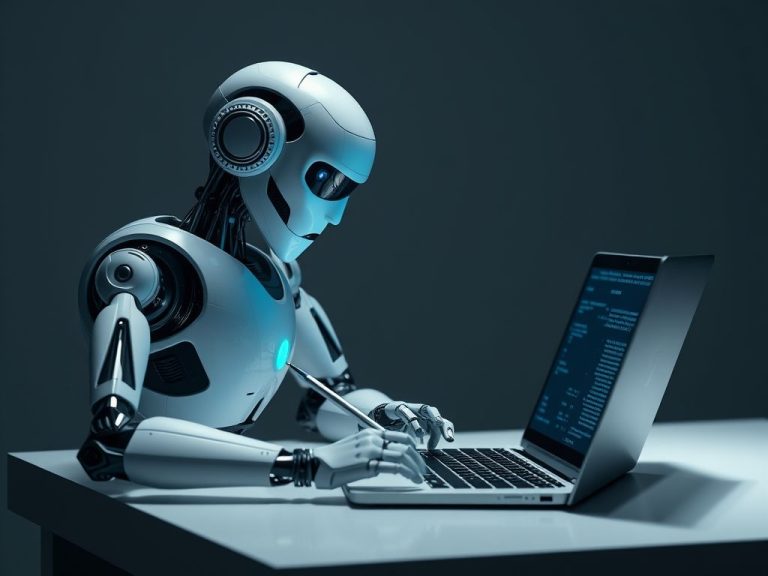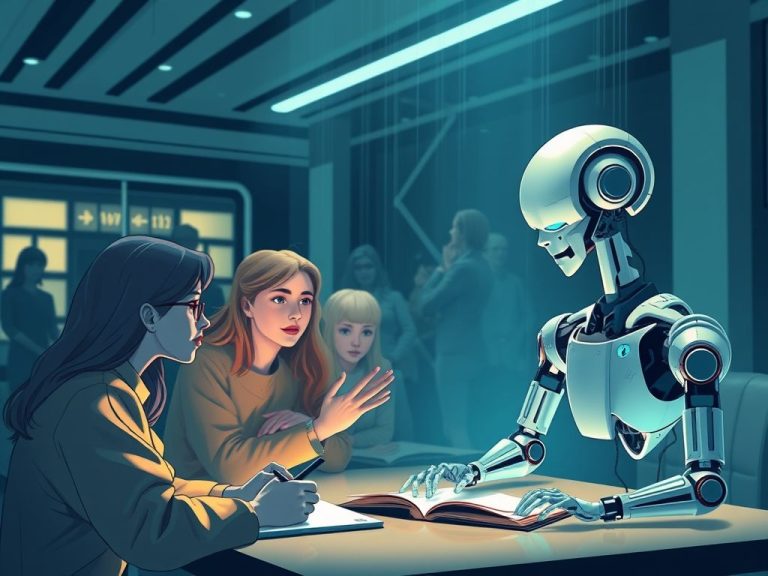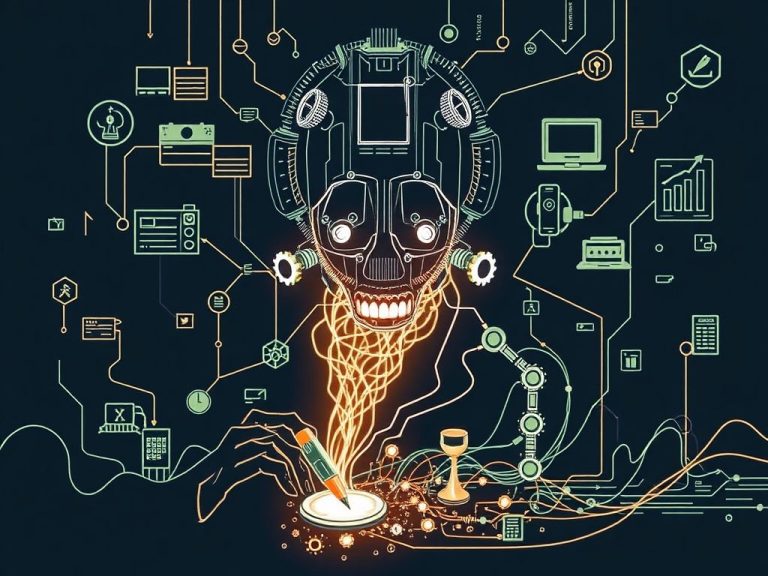Everything You Need to Know about AI Text Conversion
Artificial Intelligence (AI) has made sizeable strides in transforming the way we manner and have interaction with information. One of the most outstanding advancements is AI text conversion, a generation that has the capability to exchange the manner we cope with and create written content. AI text conversion involves using gadget getting to know algorithms and herbal language processing (NLP) techniques to transform text from one form to another. Whether it’s turning spoken words into written textual content (speech-to-textual content) or converting written text right into a unique language (translation), AI text conversion systems are becoming an imperative tool in various industries.
Understanding AI Text Conversion
AI textual content conversion refers to a hard and fast of technologies that use device mastering fashions, inclusive of deep studying and natural language processing (NLP), to convert text from one form to any other. At its middle, it involves the utility of algorithms that may examine and apprehend human language in its various forms. For instance, when a user speaks right into a device, an AI-powered speech-to-textual content system can transcribe the spoken phrases into written text. Similarly, AI-primarily based translation systems can take textual content in a single language and convert it to some other, facilitating verbal exchange among folks that communicate one-of-a-kind languages.
These systems rely upon tremendous datasets and complicated algorithms to interpret and generate textual content. The getting to know models are skilled on widespread quantities of textual content statistics to improve their knowledge and prediction competencies. Over time, the AI structures turn out to be more accurate, faster, and able to coping with an increasing number of complicated tasks. Whether for content introduction, customer support, or honestly making conversation extra efficient, AI text conversion is a developing trend this is reshaping how we have interaction with virtual content.
Challenges and Limitations of AI Text Conversion
Despite its many blessings, AI textual content conversion comes with its very own set of challenges and obstacles. One of the primary concerns is the issue of accuracy. Although AI systems have come to be increasingly more state-of-the-art, there are nonetheless instances in which AI systems struggle with context, idiomatic expressions, or nuances of language. This is specially actual for machine translation, where cultural differences and language complexities can lead to misinterpretations.
Another mission is the need for huge quantities of facts to train AI fashions. While those structures improve through the years, they require sizeable datasets, often comprising thousands and thousands of text samples, to emerge as certainly effective. This facts requirement can be high priced and time-ingesting to accumulate. Furthermore, there are privacy issues concerning the collection and processing of private facts, particularly while AI systems are used in sensitive contexts, along with healthcare or legal fields.
Additionally, AI systems, whilst powerful, nevertheless lack the human touch. They cannot absolutely understand the emotional or psychological factors of language, that’s vital in areas like content material introduction, customer service, and mental health support. As a end result, human intervention is regularly needed to refine and enhance AI-generated content material.
The Future of AI Text Conversion
The future of AI textual content conversion appears pretty promising, with continuous improvements in system gaining knowledge of and NLP technologies. As AI systems come to be extra delicate, we can count on greater accuracy, speed, and flexibility in converting text. One of the important thing developments is the mixing of AI with other emerging technologies, including virtual reality (VR) and augmented fact (AR). This will allow for extra immersive and interactive reports in fields like education, entertainment, and customer support.
Moreover, the integration of multilingual assist will enable AI textual content conversion systems to offer actual-time translation and transcription services for international audiences, breaking down language boundaries in methods that have been formerly inconceivable. With extra companies and people counting on AI for communication and content advent, the function of AI text conversion is set to grow considerably.
In conclusion, AI textual content conversion is hastily evolving, imparting a range of solutions that may improve performance, accessibility, and scalability in diverse industries. While there are challenges to overcome, the potential benefits a long way outweigh the restrictions. As AI era keeps to enhance, we are able to expect even greater innovative applications in the future, reshaping the manner we talk and have interaction with written content material. Whether for personal or professional use, information AI text conversion is important for anyone looking to stay ahead in this increasingly virtual world.
Benefits of AI Text Conversion
The adoption of AI text conversion technology has a range of benefits for businesses and individuals alike. Some of the key advantages include:
| Benefit | Description |
|---|---|
| Improved Efficiency | AI text conversion can process large volumes of text faster than humans, making tasks like transcription, translation, and summarization much quicker. |
| Enhanced Accessibility | AI-powered speech-to-text and text-to-speech tools provide improved access to information for people with disabilities, particularly for the visually or hearing impaired. |
| Cost-Effectiveness | AI systems can automate tasks that would traditionally require human input, reducing the cost of manual labor in various industries. |
| Accuracy and Consistency | With continuous learning, AI systems become more accurate and consistent, especially in tasks like translation, where human error can be frequent. |
| Scalability | AI can handle a high volume of requests simultaneously, making it ideal for applications like customer service chatbots and automated transcription services. |
Whether used for personal projects or in business environments, the potential for AI text conversion to save time and improve accuracy is vast. It is becoming an essential tool for enterprises that need to manage large amounts of content quickly and efficiently.
Conclusion
AI textual content conversion is a transformative generation with huge ability across diverse industries. By harnessing the power of system learning and natural language processing, AI can convert text from one form to some other, facilitating extra green communique and content material introduction. From speech-to-text and text-to-speech technologies to system translation and sentiment evaluation, AI equipment are reshaping how we method facts and interact with virtual content material.
The advantages of AI textual content conversion are clean: it improves performance by way of handling large volumes of textual content quick, complements accessibility for people with disabilities, and gives value-powerful solutions by way of automating duties historically performed by using people. The accuracy and consistency of AI structures additionally make them treasured in fields that require precision, such as translation offerings. Additionally, AI’s scalability lets in it to handle high volumes of requests, making it ideal for packages like chatbots and transcription services.
However, demanding situations remain. While AI structures have made superb strides, they still face difficulties with context, idiomatic expressions, and language nuances, particularly in areas like gadget translation. The need for huge, splendid datasets to educate models and privateness concerns surrounding information series additionally gift boundaries.
Looking to the future, AI text conversion will keep to evolve. As AI fashions grow to be greater state-of-the-art, we can count on expanded accuracy and versatility in handling complicated duties. Furthermore, integrating AI with emerging technologies like VR and AR will create extra immersive and interactive experiences. As companies and individuals rely extra on AI, the capacity to break down language limitations and streamline conversation is great, solidifying AI’s position in shaping the future of digital interaction and content advent.






